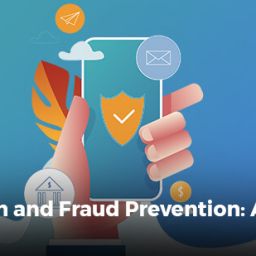
Chargebacks can be a major headache for any business owner. Not only do they result in lost revenue. But they also require a significant amount of time and resources to manage. For those who are unfamiliar. Chargebacks occur when a customer disputes a charge on their credit card and the funds are returned to them.
While they can be a necessary form of protection for consumers, they can also be abused by fraudsters or used as a loophole by dishonest customers. As a business owner, it is crucial to have strategies in place for managing chargebacks to minimize their impact on your bottom line. In this blog post. We will discuss 5 proven strategies for effectively managing chargebacks and protecting your business.
Understanding the Basics of Chargebacks
To effectively manage chargebacks, it’s imperative to grasp their fundamentals. A chargeback is initiated when a customer disputes a transaction with their credit card issuer. The reasons for this dispute can range from not recognizing a charge on their statement to being unsatisfied with a product or service received. Once a dispute is filed, the issuer credits the customer’s account, and the merchant is debited for the transaction amount, along with a chargeback fee.
This process is meant to protect consumers from fraudulent charges. But it can sometimes be misused. Understanding the reasons behind chargebacks is the first step in preventing them. Common causes include unauthorized use of the credit card, errors in billing, dissatisfaction with a purchase, or the customer not recognizing the charge due to unclear merchant names on statements.
By identifying the root causes of chargebacks within your business.Y you can start to implement targeted strategies to reduce their occurrence and mitigate their impact on your operations.
Recognizing the specifics of why chargebacks happen allows for more effective prevention and management efforts. Tailoring solutions to address the underlying issues directly.
Some Related Blogs
- Understanding the Importance of Fighting a Chargeback
- Understanding Mastercard Installments: A Comprehensive Guide
- The Impact of 3-D Secure 2.0 on Reducing Chargebacks
- Visa Chargeback Fee: An Essential Breakdown for Consumers
Implementing Strong Customer Service Practices
One of the most effective strategies for managing chargebacks is to implement strong customer service practices. A proactive approach to customer service can often prevent chargebacks before they occur. Make sure your team is easily accessible through multiple channels such as phone, email, and live chat, and that they are trained to handle inquiries and disputes professionally and efficiently.
Providing prompt and courteous service can help resolve issues before a customer feels the need to initiate a chargeback. Additionally, consider implementing a clear and easy-to-find return policy. If customers understand how they can return a product or get a refund. They are less likely to go straight to their bank with a complaint.
Transparency with your customers about their purchases, what they should expect, and how they can get help if they’re not satisfied, not only builds trust but also significantly reduces the likelihood of chargebacks.
Encouraging feedback and being responsive to customer complaints can also serve as an early warning system to identify and rectify potential problems before they escalate into chargebacks. Remember, effective communication is key in preventing misunderstandings that could otherwise lead to disputes.
Utilizing Detailed Documentation and Evidence
A robust defense against chargebacks is thorough documentation and evidence gathering. For every transaction, collect and securely store detailed records including receipts, delivery confirmations, customer communications, and any other relevant transaction details.
This documentation becomes invaluable when disputing a chargeback. As it provides tangible proof to support your case. Utilize tracking numbers for shipped items and require signatures upon delivery to confirm receipt. In cases of digital goods or services, maintain logs of customer access or downloads.
![]()
Email us anytime!
Email customer service 24/7
![]()
Call us anytime!
Reach customer care 24/7 at +1 (888) 901-8653
When a chargeback is initiated, having a comprehensive dossier of evidence can significantly improve your chances of successfully contesting it. It’s also beneficial to make this information readily available to customers upon request to clarify any misunderstandings promptly.
By maintaining detailed records, you not only prepare yourself for potential chargebacks but also demonstrate a level of professionalism and transparency that can deter fraudulent disputes. This approach also helps in identifying patterns or recurring issues that may be contributing to higher chargeback rates, allowing for targeted improvements in your business practices.
Streamlining the Payment Process
Streamlining the payment process is another crucial strategy for managing chargebacks. A smooth, straightforward checkout experience can significantly reduce the number of disputes and chargebacks your business encounters. First, ensure that your payment gateway is reliable and supports various payment methods to accommodate the preferences of all customers.
The clarity of transaction descriptions on customer statements is equally important; ambiguous or unfamiliar merchant names often lead to chargebacks because customers don’t recognize the charges.
Implementing clear, detailed descriptions can help avoid this confusion. Additionally, utilize fraud detection tools and services that can identify suspicious transactions before they’re processed, reducing the risk of fraudulent chargebacks. Incorporate verification measures like CVV (Card Verification Value) and AVS (Address Verification Service) checks to confirm the authenticity of the cardholder.
These steps not only secure the transaction process but also provide an added layer of protection for your business against potential fraud. By making the payment process as seamless and transparent as possible, you significantly lower the chances of facing chargebacks, thereby safeguarding your revenue and maintaining customer trust.
Educating Your Customers
Educating your customers plays a pivotal role in managing chargebacks effectively. It’s essential to ensure that customers are well-informed about their purchases and the processes surrounding them. This can involve providing detailed product or service descriptions, setting clear expectations regarding delivery timelines, and offering comprehensive FAQs on your website.
Additionally, educating customers about how to resolve disputes or dissatisfaction directly with your business before resorting to a chargeback can be incredibly beneficial. This could include instructions on how to reach out for support or request a refund and highlighting these options at the point of sale and in follow-up communications. By fostering an environment where customers feel informed and supported. You reduce the likelihood of misunderstandings and disputes escalating to chargebacks.
Encourage open communication channels and make it easy for customers to voice their concerns. This proactive approach not only diminishes the frequency of chargebacks but also strengthens customer relationships. Leading to increased loyalty and trust in your brand. Remember, an informed customer is less likely to file a chargeback out of confusion or frustration, making education a powerful tool in your chargeback management arsenal.





